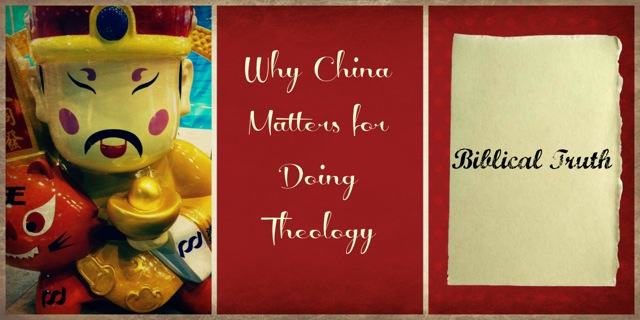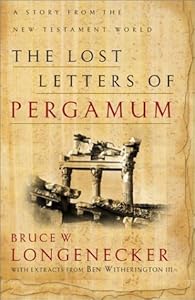Why would someone need to know more about China in order to understand the Bible better? Isn’t the Bible bigger than any particular culture?
 Yes. And that’s exactly why theologians (and anyone else who reads the Bible) should learn about China.
Yes. And that’s exactly why theologians (and anyone else who reads the Bible) should learn about China.
First of all, what am I not saying? I am not saying China somehow plays a major role in the Old and New Testaments. For example, some people claim that China is mentioned in Isa 49:12, “Behold, these shall come from afar, and behold, these from the north and from the west, and these from the land of Syene” (ESV). Likewise, we should not confuse modern China with ancient Israel.
Rest assured, I am not reading any tea leaves, concluding that either modern China is the dragon of Revelation or that the magi ate with chopsticks. I’ll leave such speculation for others.
So what do I mean? Why should China influence the way we do theology?
This week, I’ll mention three reasons. Today, I’ll discuss the first one.
Biblical truth is at stake
China is a quintessential honor-shame culture. This implies that, in the modern world, Chinese society typifies collectivistic thinking as well or better than other cultures. Similarly, Scores of books and articles have shown the way that ancient biblical cultures were shaped by honor and shame. Of course, the specific ways that these cultures express honor-shame in community are different.
Nevertheless, Western interpreters typically have little in their life experience to help them understand how honor and shame works at a deep level, i.e. its internal logic. Individualistic cultures don’t make it easy to think collectively.
Reading other ancient documents from the biblical period has value. However, it is limited by the fact that a Westerner individualist is still reading it. Accordingly, s/he will naturally notice certain details and overlook others.
On the other hand, a Chinese reader can more easily pick up on various themes and less obvious clues that are more common to honor-shame societies. Even if honor-shame cultures differ in particular practices, the general marks of such cultures transcend time and location. Interpreters must never read China into a Bible if it doesn’t belong. Yet, we also must be humble enough to recognize to importance of our own perspectives on the way we understand the Bible. If we don’t, we will effectively confuse the Bible and our theology. We in essence would be limiting the Bible, treating it merely as a “Western” book.
For those interested in studying more about honor and shame in the ancient biblical world, here are a few good places to start:
Honor, Patronage, Kinship and Purity: Unlocking New Testament Culture (by David deSilva)
Honor and Shame in the Gospel of Matthew (by Jerome Neyrey)
New Testament scholar Bruce Longenecker has written an engaging fiction that illustrates how honor and shame worked in the first century.
Lost Letters of Pergamum, The: A Story from the New Testament World
Related articles
- Legalism is an Honor Shame Problem (www.patheos.com/blogs/jacksonwu)
- The New Covenant in a Chinese Context (Part 1): A Collectivistic Understanding of Identity (www.patheos.com/blogs/jacksonwu)














